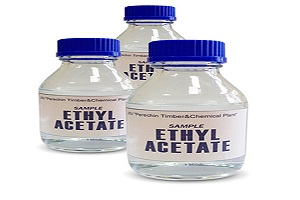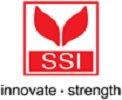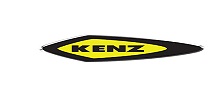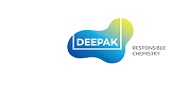Get a Project Report
Startup Business Idea
Intro:
There will always be a demand for ethyl acetate as the globe continues to grow and develop new products. It’s a highly flexible chemical that may be utilised in both industrial and consumer products, making it one of the most in-demand chemicals on the market. You can profit from this by Starting your own Ethyl Acetate Manufacturing Business. In this post, we’ll explain why you should do so.
Related Feasibility Study Reports: Chemicals (Organic, Inorganic, Industrial) Projects
Why you should start an Ethyl Acetate Business:
Whether you are an entrepreneur, an investor or you simply have a keen interest in becoming a producer of chemicals and having your own company, now is an exciting time to start an ethyl acetate business. The demand for ethyl acetate is skyrocketing as it is used in so many different industries, including adhesives, pharmaceuticals and cosmetics.
And with new technologies developed over recent years, it has never been easier to start your own ethyl acetate plant. So if you’re ready to get started on starting your own ethyl acetate business, read on. Here we will give you some advice about how to get started and what to consider when setting up your plant.
If you’re looking at getting into producing chemicals for industrial use, then an ethyl acetate business could be just what you need.
Visit this Page for More Information: Start a Business in Chemical Industry Projects
Ethyl Acetate:
It is a white liquid with a strong odour and excellent solvent properties. It is capable of dissolving a wide range of paints and lacquers. It is a water and glycerol soluble chemical molecule with the formula C4H6O2.
When an acid molecule from an alcohol molecule is replaced by an alkaline hydrogen atom, acetates or ethyl esters are formed. Esterification is the name of the procedure.
The reaction of ethanol with acetic acid produces ethyl acetate on a huge scale. In reality, one-step fermentation method is used to manufacture nearly 90% of all ethyl acetate produced worldwide (FET).
Watch Video: Ethyl Acetate Production Plant. Highly Profitable Business for Entrepreneurs
Uses of Ethyl Acetate:
It has a wide range of applications, particularly in the chemical sector. It’s a common ingredient in a variety of solvents and organic chemical compounds. Its main application is as a cellulose esters industrial solvent and plasticizer.
Perfumes, gums, lacquers, varnishes, and glue solvents are all made with it. It’s also one of a number of chemicals that can be used to make synthetic rubber. If you have access to raw materials that make it or other chemicals that require ethyl acetate as an ingredient, you may want to explore starting your own ethyl acetate production firm because it has so many uses and applications.
It is often used as a solvent in various cleaning products. In addition, it can be used in antifreeze solutions and lacquers. It is also used to give fruits a fuller, sweeter flavor when added to them.
It is used by some for its pleasant smell, which makes it ideal for use in perfumes. Even though ethyl acetate does not have any adverse effects on human health.
Download PDF: Ethyl Acetate Production Plant. Highly Profitable Business for Entrepreneurs
Manufacturing Process:
Ethyl Acetate is produced in a chemical manufacturing plant as a by-product from other chemicals such as ethanol, acetic acid and glycols. This is done by reacting sulfuric acid with ethanol under high pressure and heat. One of these methods for producing Ethyl Acetate is known as steam reforming method.
Ethanol present in steam is reacted with steam to produce hydrogen and carbon monoxide gases which are used further in a catalytic conversion process to produce Ethyl Acetate. The reaction between sulfuric acid and ethanol produces an intermediate compound called ethyl ester.
The ester reacts with water in presence of catalyst to produce Ethyl Acetate and alcohol. In another process, Ethylene Glycol reacts with H2SO4 (Sulfuric Acid) at low temperature to produce It along with water and Carbon Dioxide gas. It is then distilled off from its mixture using distillation column.
Business Plan: Ethyl Acetate Production Business
Global Market Outlook:
Ethyl acetate is a colourless liquid chemical with a fruity odour. It is also known as hexanoic acid or 2-propanoic acid. It can be created naturally by yeast and bacteria, or it can be manufactured using artificial methods. Due to rising demand from a variety of end-user sectors, this industry has been a promising one for some time.
Over the following five years, the global market for ethyl acetate is predicted to rise at a CAGR of nearly 4.2 percent, reaching 5 million tonnes in 2024, up from 4 million tonnes in 2019. During that time, China will continue to be the leading producer of ethyl acetate, with a market share of around 33%, followed by Europe (26%), and North America (12%). (24 percent). Latin America, Japan, and Southeast Asia are among the other regions.
Read our Books Here: Chemical Technology (Organic, Inorganic, and Industrial), Fine Chemicals
Asia-Pacific Market Outlook:
During the projection period, Asia-Pacific is expected to dominate the market. Furthermore, large growth rates are predicted in Asia-Pacific as a result of rising household incomes and urbanisation rates in nations like China, India, and Malaysia.
In recent years, India’s demand for ethyl acetate has been steadily increasing. The automotive, food and beverage, and packaging industries are the primary end-user industries in the country, each accounting for a considerable portion of ethyl acetate usage.
Read Similar Articles: Chemical Industry
India Ethyl Acetate Market:
The India Market was valued at US$ 587.81 million in 2020, and is predicted to grow at a CAGR of 8.07 percent to US$ 1028.23 million by 2027.
Ethyl acetic acid is an ester complex formed when ethanol and acetic acid are esterified in the presence of a strong acid. It’s used to make varnishes, coatings, cleaning solutions, and nitrocellulose. Nail polish remover and cleaning of electric circuit sheets are both done with ultra-pure ethyl acetic acid.
Pharmaceuticals, perfumes, printing inks, and meals can all benefit from low-purity ethyl acetic acid. It can be used as a decaffeination solvent for tea and coffee, as well as in herbicides. Covering formulas for wood furniture, instrument production, mining hardware, farming hardware, and marine equipment all use ethyl acetic acid.
The demand has been increasing in India because to its increasing use in coating formulations for wood furniture, instrument manufacturing, mining hardware, farming hardware, and marine equipment. In the solvent cast technique, it is also used to make flexible packaging sheets. Flexible packaging is widely used in the packaging business because it is highly versatile, comes in a variety of sizes, is inexpensive, has a long shelf life, and can be recycled.
Watch other Informative Videos: Chemicals (Organic, Inorganic, and Industrial)
Key Players:
- INEOS (UK)
- Celanese (US)
- Eastman Chemical (US)
- Jiangsu Sopo (China)
- Jiangmen Handsome (China)
- Wuxi Baichuan (China)
- Jubilant (India)
- GODAVARI BIOREFINERIES LTD. (India)
- Sekab (Sweden)
- Korea Alcohol (South Korea)
- IOL Chemicals and Pharmaceuticals (India)





















